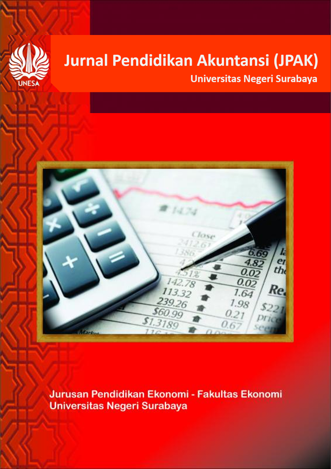Pengaruh Project Based Learning dengan Pendekatan STEAM Terhadap Kemampuan Berpikir Kritis pada Pembelajaran Online di SMK Negeri 12 Malang
DOI:
https://doi.org/10.26740/jpak.v9n3.p372-379Keywords:
Project Based Learning; STEAM; critical thinking ability; online learningAbstract
Critical thinking skills can be grown with a project based learning model with a STEAM approach. The purpose of this study was to determine the effect of Project Based Learning with the STEAM approach on critical thinking skills in online learning in accounting vocational schools. This research was conducted at SMKN 12 Malang class X. The research subjects involved 72 students. This study uses a quasi-experimental design in the form of Noneequivalent Control Group Design. The data collection technique used a test sheet in the form of an essay to collect ten items. The data analysis technique used independent sample t-Test analysis with the help of the SPSS application. The results showed that there were differences in the ability to think critically of students before and before getting treatment-based learning with the STEAM approach in online learning of service company financial statement materials. The critical thinking ability of students has increased significantly.
Downloads
Downloads
Published
How to Cite
Issue
Section
License
Authors who publish with this journal agree to the following terms:
- Authors retain copyright and grant the journal right of first publication with the work simultaneously licensed under a Creative Commons Attribution License that allows others to share the work with an acknowledgement of the work's authorship and initial publication in this journal.
- Authors are able to enter into separate, additional contractual arrangements for the non-exclusive distribution of the journal's published version of the work (e.g., post it to an institutional repository or publish it in a book), with an acknowledgement of its initial publication in this journal.
- Authors are permitted and encouraged to post their work online (e.g., in institutional repositories or on their website) prior to and during the submission process, as it can lead to productive exchanges, as well as earlier and greater citation of published work (See The Effect of Open Access).

Jurnal Pendidikan Akuntansi (JPAK) is licensed under a Creative Commons Attribution-NonCommercial 4.0 International License.
 Abstract views: 2049
,
Abstract views: 2049
, PDF Downloads: 2902
PDF Downloads: 2902



